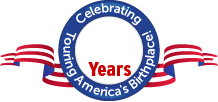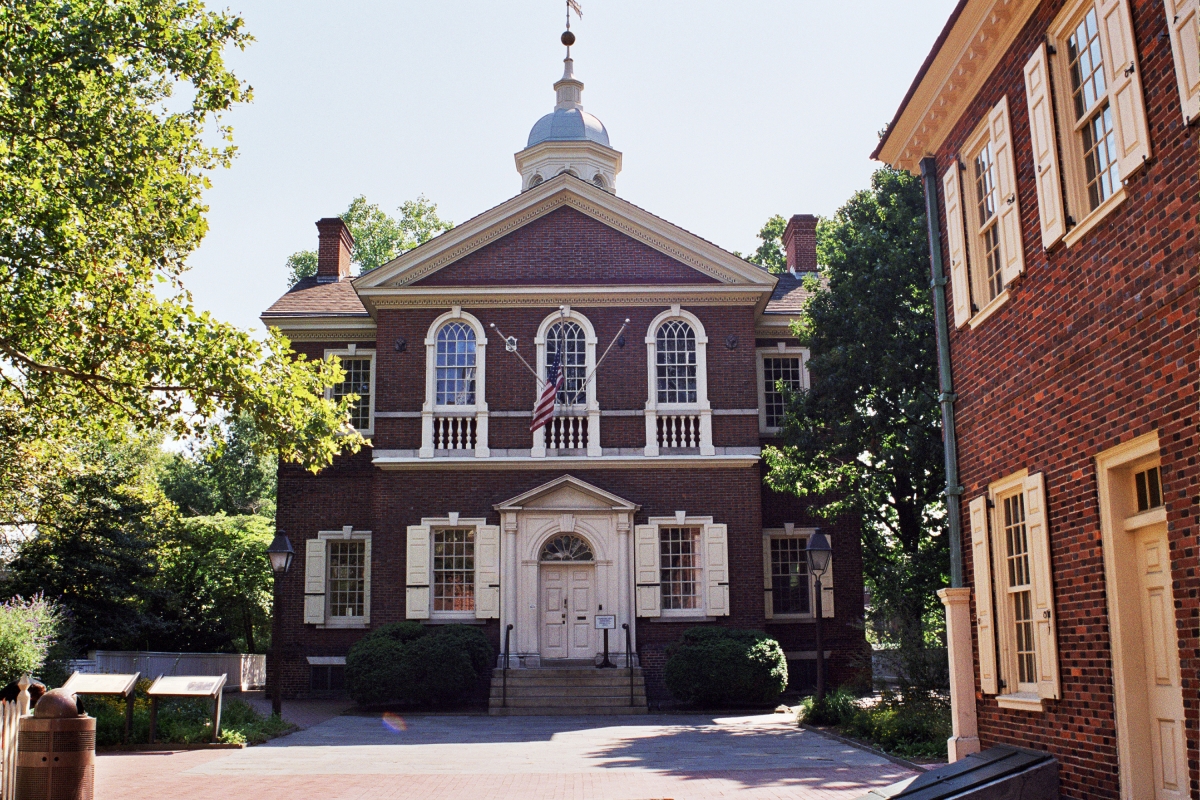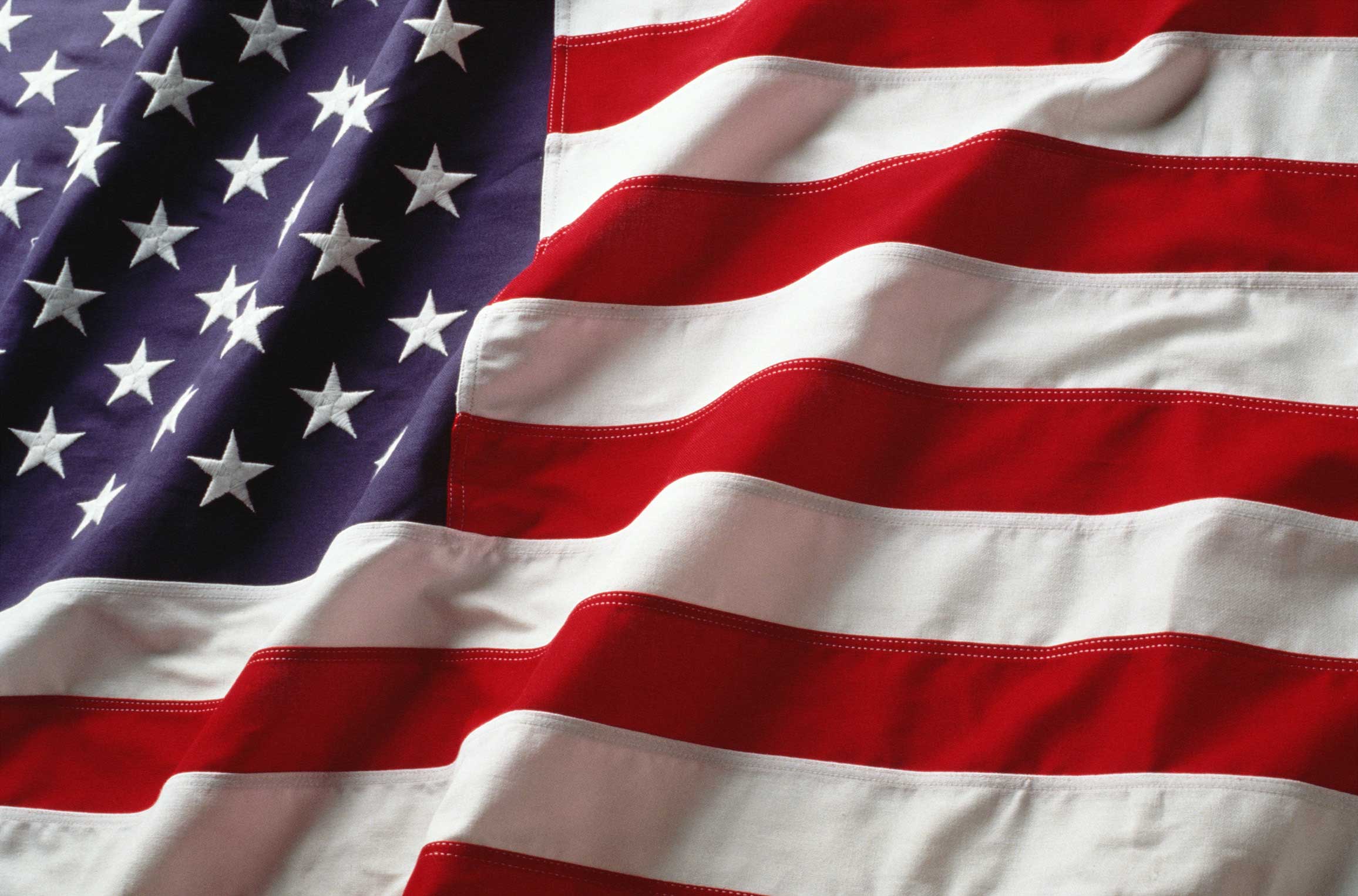The First Continental Congress
Related Posts
- Buy Tickets for The Constitutional Walking Tour of Philadelphia – See 20+ Sites on a Primary Overview of Independence Park, including the Liberty Bell and Independence Hall
- Carpenters' Hall - Meeting Place of the First Continental Congress and Birthplace of the American Identity
- Independence Hall Tickets & Visitor Guide
- Liberty Bell Tickets & Visitor Guide
The Tea Act of 1773 and The Boston Tea Party
After the Stamp Tax was repealed in 1766, The Parliament of Great Britain continued their attempts to establish their sovereignty over the American Colonies and the Colonists continued to protest any attempt at “taxation without representation.” First, Charles Townshend, the Chancellor of the Exchequer in Parliament, proposed a series of acts designed to bring the Colonies more firmly under the control of Parliament. Passed between 1767 and 1768, these acts became known as the Townshend Acts and became just as unpopular and controversial in the Colonies as the Stamp Tax. Protests eventually led to the Boston Massacre, and the eventual repeal of most of the Townshend Acts.
But the Parliament of Great Britain was determined to demonstrate their authority over the American Colonies and so in 1773 the Tea Act was passed, ensuring that at least some aspects of the Townshend Acts were not repealed and a tax on tea was preserved. The colonists were once again outraged with Parliament. It was not so much the tea tax itself that they found so distasteful but rather Parliament’s contention that they had the authority to tax the American Colonies despite the colonies having no representation or voice within Parliament.
As anger over the Tea Act erupted in the American Colonies, a boycott was established on tea in protest of the tax. Protesters in Philadelphia and New York City prevented British ships from unloading their shipment of Tea and forced them to return to England with their tea. In Boston however, the Royal Governor of Massachusetts, Thomas Hutchinson refused to bow to the will of the protestors. This led to a standoff which eventually resulted in protesters storming the ships carrying the tea and destroying all 342 chests of tea by dumping them overboard. The destructive protest which came to be known as the “Boston Tea Party” cost the British East India Company almost 10,000 pounds in 1773, or over a million dollars today.
The Intolerable Acts
When news traveled to London of the destructive Boston Tea Party, Parliament immediately set to work on a punishment for the American Colonies. The response was a series of laws named the Coercive Acts; so named as they were designed to coerce the colonists into finally accept Parliament’s sovereignty over them. The laws directly punished Massachusetts for the Boston Tea Party, but some of the laws also affected all of the other American Colonies as well. The acts included a new judicial process for British Soldiers that prevented them to be tried for crimes in the American Colonies, the forced quartering of British Soldiers in private residences and the closure of Boston Harbor until Boston paid for the tea destroyed in the Boston Tea Party. Perhaps the act that threatened colonists the most though was the Massachusetts Government Act, which stripped Massachusetts of their charter and their ability to govern themselves and brought the entire colony under the control of the British Government. Citizens in other colonies worried that if the British could do this to Massachusetts, they could be next!
A Continental Congress in Philadelphia
In the American Colonies the Coercive Acts quickly became known as the Intolerable Acts and protests against the laws were swift and intense. At the same time, leaders in the American Colonies began to organize a “Continental Congress” so that leaders from the different British Colonies on the American Continent could come together and discuss a response to the Intolerable Acts. The decision was made to meet in Philadelphia, then the largest city in the American Colonies and centrally located. Representatives from the thirteen British colonies, with the exception of Georgia, arrived in Philadelphia on September 5, 1774, and met inside of Carpenters' Hall.
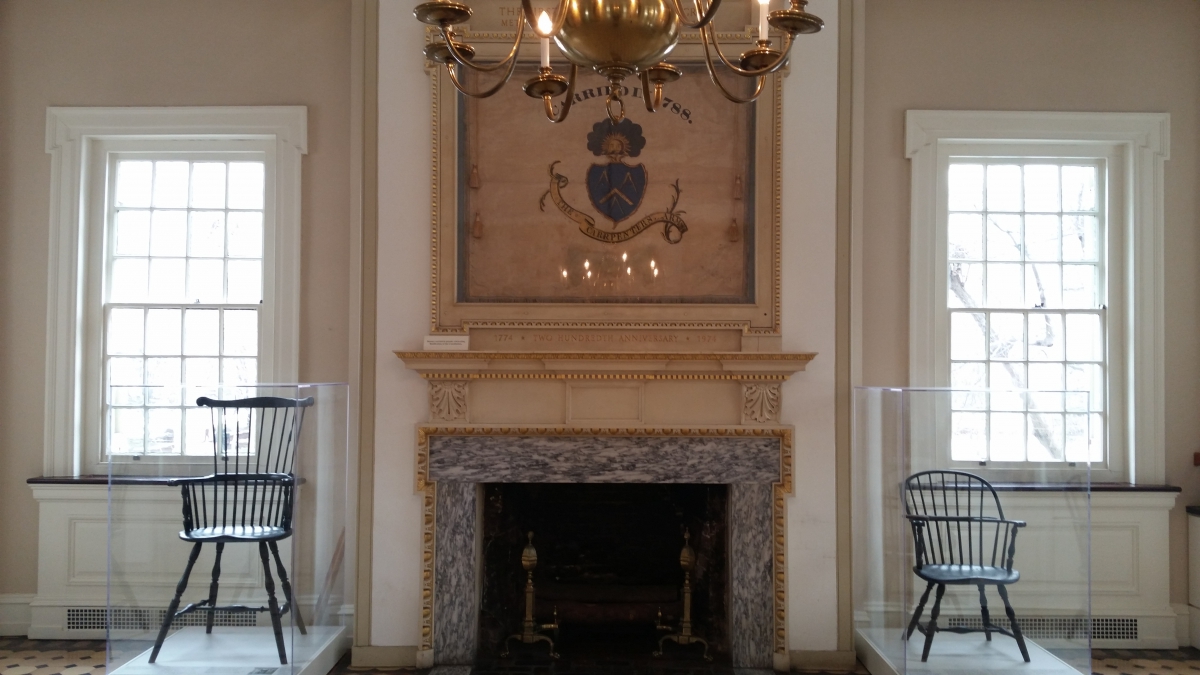
The Birthplace of American Identity
It had been nine years since delegates from different Colonies had gathered briefly for the Stamp Act Congress, and there had been little lasting unity among the Colonies in the interim. Still governed by separate governments and run under different laws, the Colonies were truly different places. Despite their differences, when the Colonies came together for the First Continental Congress, the Delegates were hopeful for the creation of a more meaningful and lasting unity.
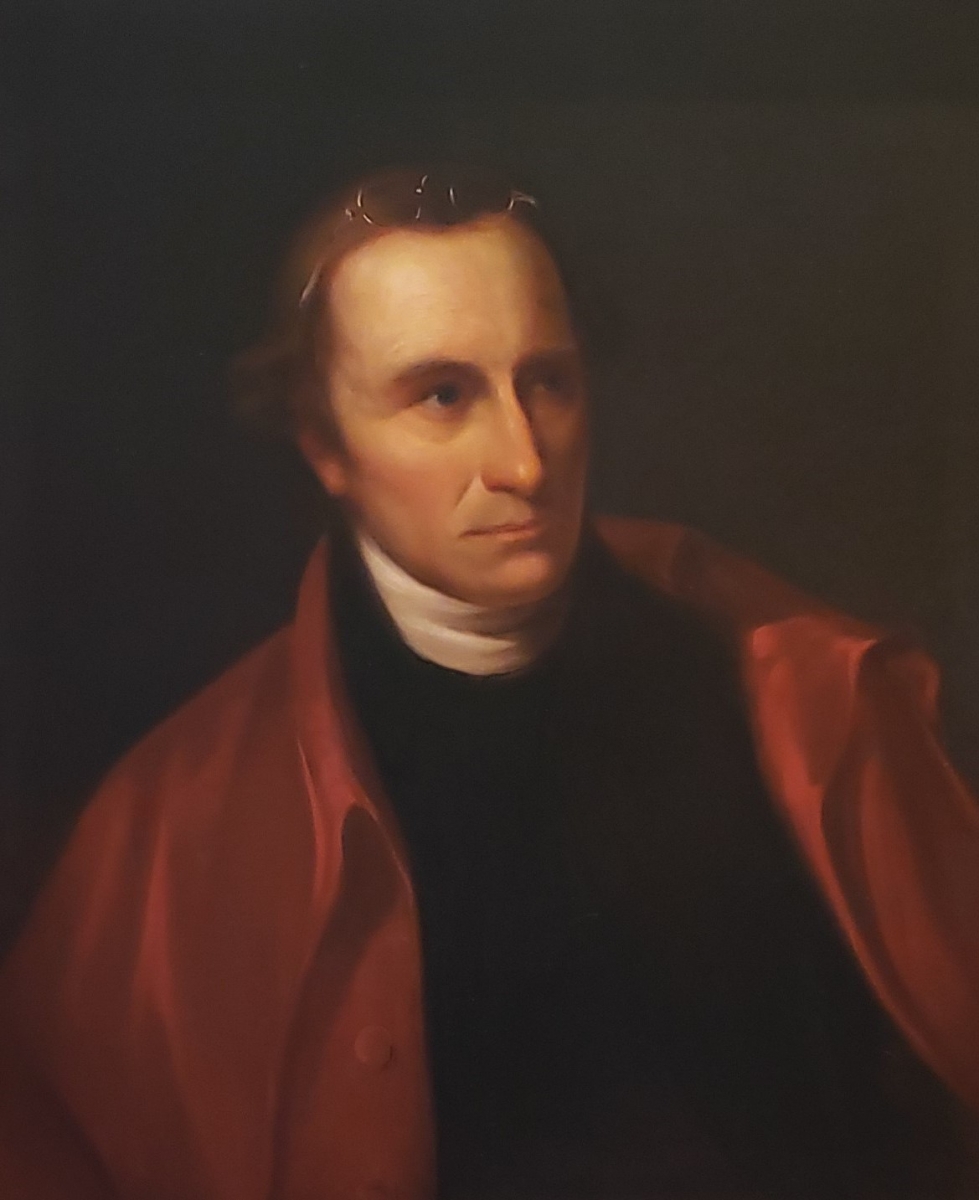
Demonstrating this newfound feeling of unity, on the second day of the assembly in early September 1774, Patrick Henry of Virginia stood before his fellow delegates and gave a rousing speech in which the concept of the American identity was born when he proudly proclaimed:
“The distinctions between Virginians, Pennsylvanians and New Englanders are no more. I am not a Virginian, but an American”
Actions
The First Continental Congress elected Peyton Randolph of Virginia as their president and was able to come together and take two major actions to try and resolve their problems with the British. The first was creation of two documents, the Petition to the King and the Declaration and Resolves of the First Continental Congress (also known as The Declaration of Rights and Grievances). The Petition to the King was an appeal directly to King George III to repeal the Intolerable Acts. Second, the First Continental Congress also agreed to a boycott of British goods that was intended to place pressure on British Parliament to repeal the Coercive Acts. Neither action had a major effect on the ongoing confrontation with Great Britain. King George III never responded to the Petition to the King, and the boycott did not cause the Parliament to change their views on the need for the Coercive Acts.
More important than any single action of the First Continental Congress was the simple fact that the Colonists had begun to unite and tie their fortunes and futures together. At the end of the First Continental Congress, the Founding Fathers committed to maintaining this unity and decided to meet again in May of 1775 if Great Britain did not resolve their issues. As Great Britain never addressed their concerns, the Colonists did in fact meet again, at what became known as the Second Continental Congress.
Carpenters' Hall Today
Carpenters' Hall, the meeting place of the First Continental Congress still stands today. Built in 1770 by the Carpenters' Company, the oldest existing craft guild in the United States, Carpenters' Hall is located just south of Chestnut Street and East of 4th Street. The Hall is still owned by the Carpenters' Company today, and it is open to the public. Carpenters' Hall is an important stop on The Constitutional Walking Tour.
Delegates
The First Continental Congress Consisted of 56 Delegates from Twelve Colonies:
Connecticut
- Silas Deane
- Eliphalet Dyer
- Roger Sherman
Delaware
- Thomas McKean
- George Read
- Caesar Rodney
Maryland
- Samuel Chase
- Robert Goldsborough
- Thomas Johnson
- William Paca
- Matthew Tilghman
Massachusetts Bay
- John Adams
- Samuel Adams
- Thomas Cushing
- Robert Treat Paine
New Hampshire
- Nathaniel Folsom
- John Sullivan
New Jersey
- Stephen Crane
- John De Hart
- James Kinsey
- William Livingston
- Richard Smith
New York
- John Alsop
- Simon Boerum
- James Duane
- William Floyd
- John Haring
- John Jay
- Philip Livingston
- Isaac Low
- Henry Wisner
North Carolina
- Richard Caswell
- Joseph Hewes
- William Hooper
Pennsylvania
- Edward Biddle
- John Dickinson
- Joseph Galloway
- Charles Humphreys
- Thomas Mifflin
- John Morton
- Samuel Rhoads
- George Ross
Rhode Island
- Stephen Hopkins
- Samuel Ward
South Carolina
- Christopher Gadsden
- Thomas Lynch Jr.
- Henry Middleton
- Edward Rutledge
- John Rutledge
Virginia
- Richard Bland
- Benjamin Harrison
- Patrick Henry
- Richard Henry Lee
- Edmund Pendleton
- Peyton Randolph
- George Washington

